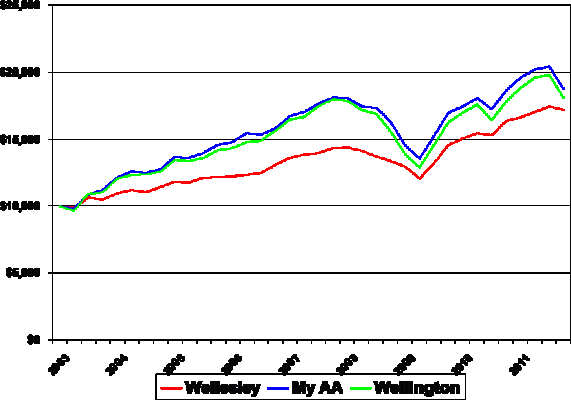Midpack
Give me a museum and I'll fill it. (Picasso) Give me a forum ...
I had not done this in a while, but I plotted my actual AA performance (50/40/10) vs Vanguard's Wellesley (40/60) and Wellington (60/40). I knew they'd appear highly correlated, but even more than I imagined. I own 12 funds, mostly indexes, 9 equity funds, 2 bond funds and a MM. I do so mostly to add a small tilt, a value tilt, a few sector funds (low correlation) and control bond duration - yet almost identical to Wellington. Wellesley is lower return, but it's clearly a smoother ride, both as expected.
I got very slightly higher returns than Wellington, but almost neglible. My AA isn't at all high maintenance, but this kinda makes it hard to argue the merits of slice & dice vs balanced funds...just thought it was interesting. Simple is good...
I got very slightly higher returns than Wellington, but almost neglible. My AA isn't at all high maintenance, but this kinda makes it hard to argue the merits of slice & dice vs balanced funds...just thought it was interesting. Simple is good...
Attachments
Last edited:


